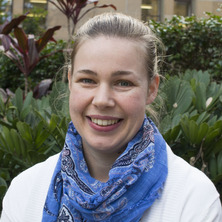
Overview
Background
Plants, unlike animals, are amazingly plastic, having the ability to drastically change their above and below ground architecture in response to changing conditions. These changes in conditions, which may only be local to a specific plant part, can be communicated throughout the plant via long distance signals, including plant hormones, to elicit a plant-wide coordinated response. My research is concerned with the regulation of the above ground shoot architecture, or branching, and how different signals interact to control when, where and how a tiny bud will grow into a branch. This is an important plant trait, being a major determinant of yield in field, horticulture and forestry crops.
The interplay of multiple factors (including hormonal, developmental and environmental) coordinately act to regulate bud outgrowth. The plant hormones strigolactone and auxin inhibit bud outgrowth, while cytokinin promotes outgrowth. Environmental and developmental factors (i.e. photoperiod/daylength, position of axillary bud along stem) and many flowering genes also influence bud outgrowth, particularly the patterns of outgrowth. For example, photoperiod substantially affects the position of branches along the stem, even in decapitated and strigolactone-deficient plants, and therefore does not require the branching hormone strigolactone. Photoperiod regulation of branching patterns is not solely attributable to the process of flowering, as some mutants that do not flower under any photoperiod still display photoperiod-responsive vegetative traits.
My research, using the model plant garden pea (Pisum sativum), seeks to discover how strigolactones and other known hormones/signals regulate shoot architecture in response to environmental factors (photoperiod) and in coordination with developmental processes (flowering). I am studying the interactions between pathways controlling photoperiod, light response, flowering and branching which will help me to identify factors that determine position of branches along the stem. Understanding such crosstalk is important and will be an important step towards targeted modification of plant architecture, enabling bud outgrowth to be directed to desired regions or stages of plant growth.
Availability
- Dr Elizabeth Dun is:
- Available for supervision
Fields of research
Qualifications
- Bachelor of Science, The University of Queensland
- Bachelor (Honours) of Science (Advanced), The University of Queensland
- Doctor of Philosophy, The University of Queensland
Works
Search Professor Elizabeth Dun’s works on UQ eSpace
2009
Journal Article
Strigolactones: discovery of the elusive shoot branching hormone
Dun, E.A., Brewer, P.B. and Beveridge, C.A. (2009). Strigolactones: discovery of the elusive shoot branching hormone. Trends in Plant Science, 14 (7), 364-372. doi: 10.1016/j.tplants.2009.04.003
2009
Journal Article
Strigolactone acts downstream of auxin to regulate bud outgrowth in pea and arabidopsis
Brewer, Philip B., Dun, Elizabeth A., Ferguson, Brett J., Rameau, Catherine and Beveridge, Christine A. (2009). Strigolactone acts downstream of auxin to regulate bud outgrowth in pea and arabidopsis. Plant Physiology, 150 (1), 482-493. doi: 10.1104/pp.108.134783
2008
Journal Article
Strigolactone inhibition of shoot branching
Gomez-Roldan, V., Fermas, S., Brewer, P., Puech-Pagès, V., Dun, E., Pillot, J-P., Letisse. F., Matusova, R., Danoun, S., Portais, J-C., Bouwmeester, H., Bécard, G., Beveridge, C. A., Rameau, C. and Rochange, S.F. (2008). Strigolactone inhibition of shoot branching. Nature, 455 (7210), 189-194. doi: 10.1038/nature07271
2007
Other Outputs
Branching in pea : molecular physiology and computational analysis
Dun, Elizabeth (2007). Branching in pea : molecular physiology and computational analysis. PhD Thesis, School of Integrative Biology, The University of Queensland. doi: 10.14264/134173
2007
Conference Publication
Hypothesis-driven computational modelling of the shoot branching control network in pea
Dun, E., Hanan, J. and Beveridge, C. A. (2007). Hypothesis-driven computational modelling of the shoot branching control network in pea. CSIRO Transformational Biology Workshop, Black Mountain, Australia, 18-20 June, 2007. CSIRO.
2006
Journal Article
Apical dominance and shoot branching. Divergent opinions or divergent mechanisms?
Dun, E. A., Ferguson, B. J. and Beveridge, C. A. (2006). Apical dominance and shoot branching. Divergent opinions or divergent mechanisms?. Plant Physiology, 142 (3), 812-819. doi: 10.1104/pp.106.086868
2006
Journal Article
Branching genes are conserved across species. Genes controlling a novel signal in pea are coregulated by other long-distance signals
Johnson, X., Brcich, T., Dun, E. A., Goussot, M., Haurogne, K., Beveridge, C. A. and Rameau, C. (2006). Branching genes are conserved across species. Genes controlling a novel signal in pea are coregulated by other long-distance signals. Plant Physiology, 142 (3), 1014-1026. doi: 10.1104/pp.106.087676
2004
Conference Publication
Hypothesis driven modelling of long-distance signalling and plant development
Beveridge, Christine, Harding, Elizabeth, Renton, Michael, Bell, Paul, Parmenter, Kathy and Hanan, Jim (2004). Hypothesis driven modelling of long-distance signalling and plant development. 4th International Workshop on Functional-Structural Plant Models (FSPM 04), Montpellier, France, 7-11 June, 2004. Montpellier, France: UMR AMAP.
2004
Conference Publication
Novel signals and IAA cross-talk
Beveridge, C. A., Foo, E., Murray, M. D., Dun, E. A. and Brcich, T. A. (2004). Novel signals and IAA cross-talk. IPGSA 2004, Canberra, Australia, 20th - 24th September, 2004.
2003
Conference Publication
Branching in Pisum sativum (garden pea)
Harding, E. A. (2003). Branching in Pisum sativum (garden pea). The Inaugural Retreat for the ARC Centre of Excellence for Inh, Moreton Bay Research Station, North Stradbroke Island, 27th Feb To 2nd Mar, 2003. UQ: ARC Centre of Excellence For Integrative Legume Research.
Funding
Past funding
Supervision
Availability
- Dr Elizabeth Dun is:
- Available for supervision
Looking for a supervisor? Read our advice on how to choose a supervisor.
Supervision history
Current supervision
-
Doctor Philosophy
Exploring the molecular and physiological basis of flowering behaviour in mungbean
Associate Advisor
Other advisors: Professor Christine Beveridge, Professor Lee Hickey, Dr Karen Massel, Professor Michael Udvardi, Dr Millicent Smith
Completed supervision
-
2021
Doctor Philosophy
The roles and interactions of phytohormones and sugars in shoot branching
Associate Advisor
Other advisors: Professor Christine Beveridge
Media
Enquiries
For media enquiries about Dr Elizabeth Dun's areas of expertise, story ideas and help finding experts, contact our Media team:
